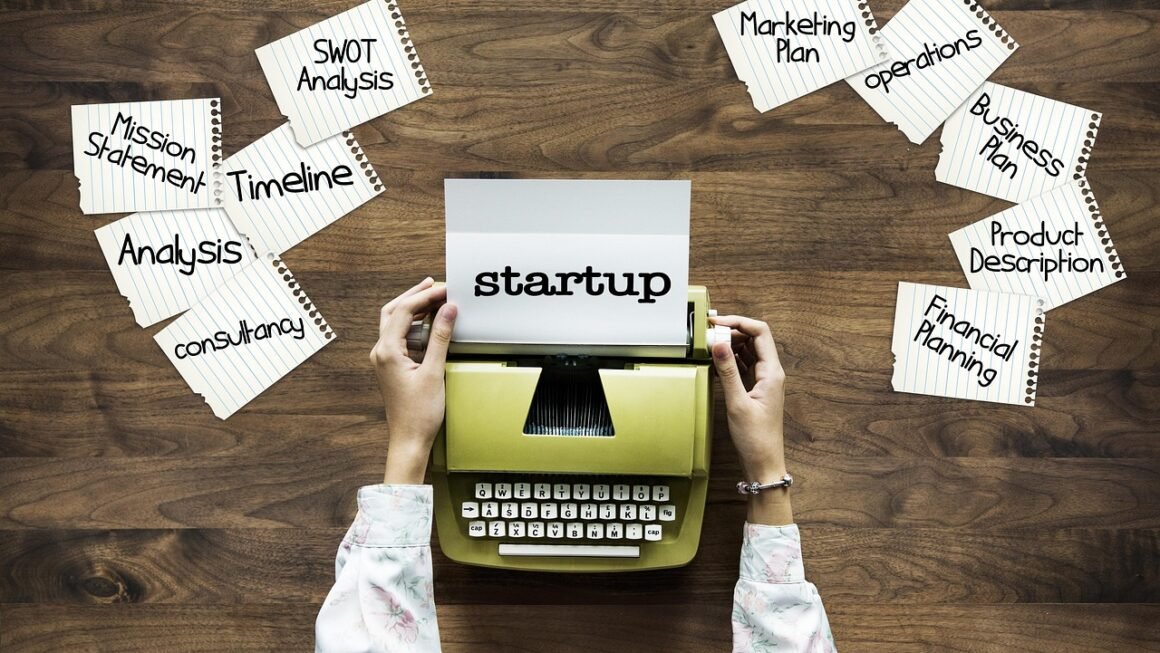The AI revolution is transforming the startup landscape, offering unprecedented opportunities for innovation and growth. But navigating this complex terrain requires the right tools. This guide explores essential AI startup tools, providing insights into how they can supercharge your business from idea validation to scaling operations. Let’s dive in and discover how to leverage AI to gain a competitive edge.
Idea Validation and Market Research with AI
Identifying Untapped Niches
One of the most crucial steps for any startup is validating its core idea and identifying the right market. AI-powered tools can significantly accelerate this process. Consider using tools like:
- GPT-3 powered assistants: These tools can help brainstorm ideas based on market trends, customer pain points, and emerging technologies. Simply provide a prompt related to your area of interest and let the AI generate potential business ideas.
- Market research AI platforms: Platforms like MarketMuse or Semrush (with its AI writing assistant) can analyze vast amounts of online data, including competitor websites, social media trends, and customer reviews. This helps uncover underserved niches and identify unmet needs.
For example, a startup aiming to launch a sustainable clothing brand could use AI to analyze customer sentiments regarding eco-friendly materials and ethical production practices, identifying specific areas where current brands fall short.
- Social listening tools with AI: Tools such as Brandwatch or Mention can monitor social media conversations to gauge public opinion about your potential product or service. They use AI to analyze sentiment, identify key influencers, and track emerging trends.
- Actionable Takeaway: Use AI-driven market research to identify a viable niche and tailor your startup idea to meet specific customer needs and preferences. Don’t just assume; validate!
Competitor Analysis with AI
Understanding your competition is essential for success. AI-powered competitor analysis tools offer a significant advantage:
- Automated competitor monitoring: AI can automatically track competitor websites, social media profiles, and online reviews. This allows you to stay informed about their latest products, pricing strategies, and marketing campaigns.
- Gap analysis: AI can identify gaps in the market by comparing your offering to those of your competitors. This allows you to differentiate your product or service and carve out a unique position.
- Sentiment analysis: AI can analyze customer reviews of your competitors to identify their strengths and weaknesses. This provides valuable insights into what customers like and dislike, enabling you to improve your offering and address unmet needs.
For instance, an AI startup offering a personalized education platform could use sentiment analysis on reviews of existing online learning platforms to understand common complaints, such as lack of engagement or inadequate support.
- Actionable Takeaway: Leverage AI to perform in-depth competitor analysis and identify opportunities to differentiate your startup and offer a superior product or service.
Product Development and Innovation Using AI
AI-Assisted Design and Prototyping
AI is transforming product development by enabling faster and more efficient design and prototyping:
- Generative design: AI algorithms can generate multiple design options based on specified constraints and objectives. This allows you to explore a wider range of possibilities and identify optimal solutions.
Example: Using Autodesk Fusion 360 with generative design capabilities to create lightweight and strong components for drones.
- AI-powered prototyping: Tools like Proto.io or Adobe XD can be enhanced with AI to automatically generate interactive prototypes from sketches or wireframes. This significantly reduces the time and effort required to create a functional prototype.
- Code generation: AI can assist with code generation, automating repetitive tasks and reducing the risk of errors. This can significantly accelerate the development process. Consider using tools like GitHub Copilot or Tabnine.
- Actionable Takeaway: Embrace AI-assisted design and prototyping to accelerate your product development cycle and create innovative solutions.
AI-Driven Testing and Quality Assurance
Ensuring product quality is paramount. AI offers powerful capabilities for automated testing and quality assurance:
- Automated testing: AI-powered testing tools can automatically generate test cases and execute them, identifying bugs and defects more quickly and efficiently than manual testing.
- Predictive analytics: AI can analyze historical testing data to predict potential problem areas and prioritize testing efforts. This allows you to focus on the areas that are most likely to have issues.
- Visual testing: AI can perform visual testing, comparing screenshots of the application to identify visual regressions and inconsistencies. This is particularly useful for ensuring the quality of user interfaces.
Tools like Applitools use AI to automate visual testing, identifying even subtle differences in the appearance of an application across different browsers and devices.
- Actionable Takeaway: Integrate AI-driven testing and quality assurance into your development process to ensure the highest level of product quality and reliability.
Marketing and Sales Enhancement with AI
Personalized Marketing Campaigns
AI allows startups to create highly personalized marketing campaigns that resonate with individual customers:
- Segmentation: AI can analyze customer data to identify different segments based on demographics, behavior, and preferences. This enables you to tailor your marketing messages to specific groups.
- Personalized content: AI can generate personalized content, such as email subject lines, product recommendations, and ad copy, based on individual customer profiles.
- Predictive analytics: AI can predict which customers are most likely to convert and tailor your marketing efforts accordingly.
For example, an e-commerce startup could use AI to analyze customer browsing history and purchase patterns to recommend products that are most likely to be of interest to each individual customer.
- Actionable Takeaway: Implement AI-powered personalization in your marketing campaigns to increase engagement, conversion rates, and customer satisfaction.
AI-Powered Sales Automation
AI can automate many of the repetitive tasks involved in sales, freeing up your sales team to focus on building relationships and closing deals:
- Lead scoring: AI can automatically score leads based on their likelihood to convert, allowing your sales team to prioritize their efforts.
- Chatbots: AI-powered chatbots can answer customer questions, provide support, and even qualify leads.
- Sales forecasting: AI can analyze historical sales data to predict future sales performance, enabling you to make more informed decisions about resource allocation and sales strategies.
Tools like Salesforce Einstein use AI to automate sales tasks, personalize customer interactions, and provide insights to improve sales performance.
- Actionable Takeaway: Automate your sales processes with AI to increase efficiency, improve lead management, and drive revenue growth.
Operations and Customer Support Optimization with AI
Streamlined Customer Support
AI-powered customer support tools are revolutionizing the way startups interact with their customers:
- AI chatbots: Provide instant answers to common questions, resolving issues quickly and efficiently.
- Sentiment analysis: Identifies customer frustration and escalates urgent issues to human agents.
- Ticket routing: Automatically routes support tickets to the appropriate agent based on the nature of the issue.
Example: Using Zendesk with its AI-powered features to provide personalized support and automate ticket resolution.
- Actionable Takeaway: Enhance customer support by using AI to provide faster, more efficient, and more personalized service.
Optimizing Business Processes with AI
AI can be used to optimize a wide range of business processes, from supply chain management to financial forecasting:
- Supply chain optimization: AI can analyze data from various sources to optimize inventory levels, reduce transportation costs, and improve delivery times.
- Fraud detection: AI can identify fraudulent transactions and prevent financial losses.
- HR automation: AI can automate tasks such as resume screening, candidate selection, and employee onboarding.
Example: Implementing AI-powered RPA (Robotic Process Automation) to automate repetitive tasks such as invoice processing and data entry.
- Actionable Takeaway: Identify opportunities to automate and optimize business processes with AI to improve efficiency, reduce costs, and enhance decision-making.
Conclusion
AI startup tools are no longer a luxury but a necessity for startups seeking to compete and thrive in today’s dynamic market. By embracing these tools and integrating them into your workflows, you can unlock new levels of efficiency, innovation, and customer satisfaction. From idea validation to customer support, AI provides the capabilities needed to accelerate growth, optimize operations, and achieve sustainable success. Start experimenting with these tools today and pave the way for your startup’s bright future.




